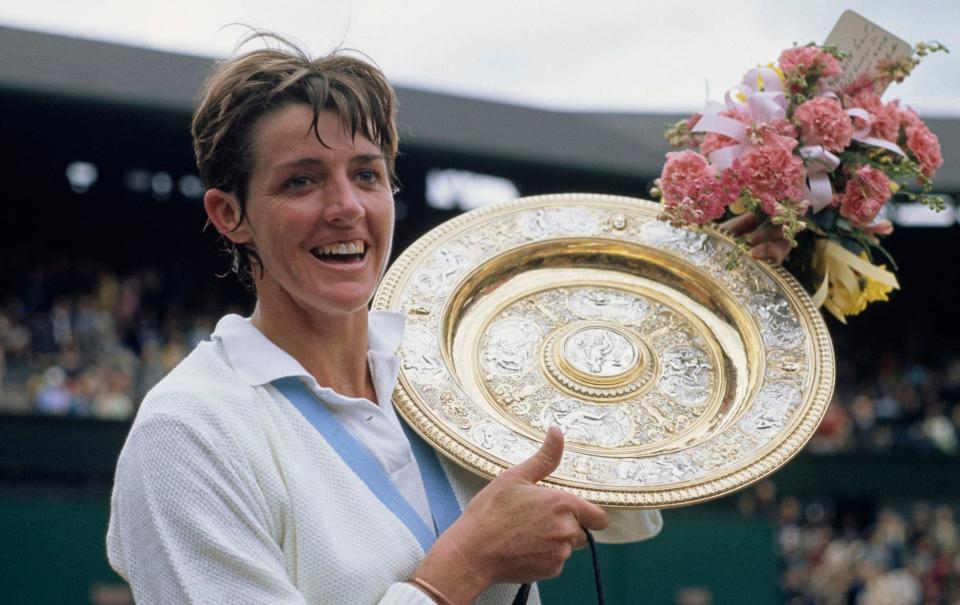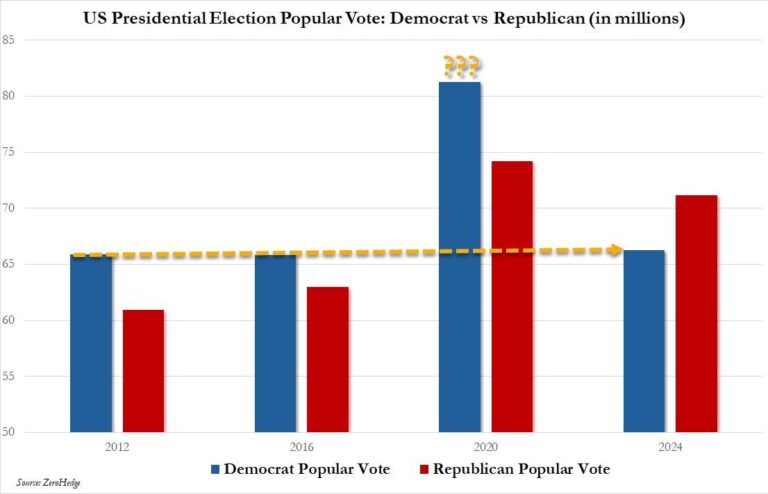
The UK Telegraph published this piece. I’m blown away.
The greatest female tennis player of all time is someone you’ve never heard of. Why haven’t you heard of her? Because she’s an outspoken Christian who doesn’t go along with the LGBT agenda.
The Telegraph: On a peaceful Saturday in Perth, 12,000 miles from the clamour and bombast at Flushing Meadows, Margaret Court has just seen Serena Williams thwarted in a final tilt at equalling her place among the tennis immortals. While “greatest of all time” messages flash up on the electronic tickers inside Arthur Ashe Stadium, the statistical greatest, the woman with 24 grand slam singles titles to the departing Williams’ 23, is at the end of this long-distance telephone call. It is a distinction that now looks destined to last another generation at least. And yet the realisation brings a complex swirl of emotions. “Serena, I’ve admired her as a player,” Court says. “But I don’t think she has ever admired me.”
This is the rarest of audiences with Court, who almost never grants extended interviews. “I don’t do this much any longer,” she laughs, ruefully. “I was at Wimbledon this year and nobody even spoke to me. So I thought, ‘Ah, that’s interesting.’”
Here lies the bitter truth: that the figure with more major triumphs of any player in history, male or female, is one on whom her sport would rather turn its back. In contrast to the relentless sugar-rush that accompanied Williams’ farewell in New York, her fellow all-time great finds herself airbrushed from the picture, discarded as an inconvenient relic.
Except Court, who turned 80 in July, remains very much active. When we speak, she is still preparing the Sunday services she is due to deliver at Perth’s Victory Life Centre, the church where she has served as a pastor since 1995. She is more than sharp enough to discern what is happening to her in tennis, which, regardless of her unmatched feats, prefers to relegate her to a footnote in The Serena Show.
“It’s very sad, because a lot of the press and television today, particularly in tennis, don’t want to mention my name,” she says. “It’s only when they have to, because I still hold so many records. In 2020, I was meant to be coming to Wimbledon for the 50th anniversary of my calendar grand slam. But then Covid hit, so the honour never happened. The French Open didn’t invite me, the US Open didn’t invite me. Rod Laver had won the slam and I was going to be honoured in the same way, but no. I didn’t lose any sleep over it. But the honour has not been there for what I did do. In my own nation, I have been given titles, but they would still rather not mention me.”
These efforts at expunging Court’s achievements all come in direct response to her beliefs as a devout Pentecostal Christian. In 2012, she publicly opposed same-sex marriage in Australia, and in 2017 declared that she would boycott national airline Qantas over its support for the cause. The backlash has been sustained and ferocious, with Martina Navratilova declaring: “Her myopic view is truly frightening.”
But Court backtracks not an inch in asserting either her core convictions or her right to express them. Asked whether it grieves her to see Williams fail to voice even a modicum of respect for her career, she says: “I think a lot of it is because of being a minister and making a stand for my beliefs. I have had a lot of bullying. But we should be able to say what we believe. I’ve got nothing against anybody. I respect everybody, I minister to everybody. I love the game still. I teach a lot of young people today, and I use illustrations from tennis about the discipline, the commitment, the focus. Sport brings so much to your life.”
Is it becoming more difficult to uphold her beliefs in the face of such rancour and hostility? Court gives an unequivocal answer. “I became a Christian when I was No 1 in the world,” she explains. “You will never change me from that. This is what I believe and what the Bible says. People miss out on the reality, which can be so wonderful in your life. I’m 80 now, and I’ve been blessed with a wonderful family and a wonderful church. We put out 100 tonnes of food into the community every week. I love it. I loved my tennis days, I believe it was a gift from God, and I love what I do today.”
Even altruistic work can be complicated, though, given the extent to which Court has been ostracised both in Australia and overseas. Recently, she was refused a state lottery grant as a consequence of her “biblical views”. “You still get bullied by LGBT groups,” she says. “Even when I’m helping the poor, some companies are not allowed to give my church things because of my name.”
There are vehement demands, too, for Melbourne Park’s Margaret Court Arena to be renamed, with LGBT lobbyists calling for the change in reaction to her “consistent attacks” on their community. “Well, they got everything they wanted in marriage, and everything else,” Court shoots back. “So, I think, ‘Why, when you should be so happy you’ve got that, are you still taking it out on people if they haven’t got the same beliefs?’ That’s what I don’t understand.”
‘The Aussie Amazon’
In the minds of younger tennis followers who have grown up with Williams’ remorseless dominance, Court belongs to the realm of sepia. But a half-century on, her body of work is still staggering. Across her amateur and professional career, she won 1,180 of 1,287 matches, earning the moniker “the Aussie Amazon” for her supreme fitness, which owed much to her running drills on sand hills. At the majors, once singles, doubles and mixed titles are added together, her record trounces that of Williams, 64-39. “The 64,” she predicts, with good reason, “I don’t think anyone will ever touch.”
She also amassed that prodigious total far more quickly than anyone before or since. “Serena has played seven years more than I did,” Court points out. “I finished in my early 30s. People forget that I took two years out. I first retired, like Ash Barty, when I was 25, thinking I would never return to tennis. I got married, had a baby, but then had one of my best years, winning 24 out of 25 tournaments.”
Unfortunately, the standards by which Court and Williams are judged can be wildly inconsistent. Take motherhood as an example. The admiration for Williams’ performances since giving birth to daughter Olympia in 2017 has, at times, morphed into syrupy genuflecting. In one toe-curling moment at the 2018 US Open final, she was asked, after she had defamed umpire Carlos Ramos as a “thief”: “How did motherhood influence how you comforted Naomi Osaka today?” Except the route from parenthood to major finals was one that Court had already conquered. “I came back after two babies!” she exclaims. “After having the first baby, I won three out of the four slams. And Serena hasn’t won a slam since.”
Court is at pains to stress that she regards Williams highly as a champion. But there are signs she does not care much for the American’s sportsmanship, or lack of it. In some of the hagiographies of the past 10 days, it has been overlooked that Williams told a New York lineswoman in 2009 that she would “f—— take the ball and shove it down your throat”, or that she accused umpire Eva Asderaki in 2011 of being “unattractive inside”. Observing her Broadway-esque curtain-call from Australia, Court was unimpressed that the retiring superstar neglected to give greater acknowledgement to the winner, Australia’s Ajla Tomljanovic.
“I thought it was bad that Williams didn’t mention her opponent more when she spoke,” she says. “We were taught to be role models for the young, in how we behaved. We were taught to honour our opponent. You learned from your losses. We respected one another.”
There is a sly revisionism at work in tennis. At first, Williams made no secret that the emulation of Court’s singles record was an abiding secret. “I’d be lying if I said I didn’t want it,” she conceded. “Obviously I do.” Then, in the lead-up to her last ever tournament, she changed tack, saying: “I’ve already broken the record.” This is, at best, a moot point. Granted, Court won the majority of her titles before the dawn of the Open era in 1968, when professionals were allowed to compete alongside amateurs. But the record book does not recognise this demarcation. It is unambiguous, considering her results as a whole and leaving her ahead of Williams by one.
Billie Jean King, another to have condemned Court for her position on homosexuality, has unconditionally anointed Williams as “the greatest”. One reason is that she has no regard for the Australian Open that Court bestrode in the 1960s, dismissing it at the time as “minor-league”. It is a characterisation that Court strongly rejects. “I won 11 Australian Opens. I often hear Billie Jean saying that people didn’t come down to Australia in my early years. But Maria Bueno, the world No 1, came down. So did Christine Truman, Ann Haydon, Darlene Hard. Plus, Australia had some wonderful players. We had five girls in the top 10. Lesley Bowrey won two French Opens. A lot of the Australian girls today don’t get past the quarters or the semis.”
Court has little time, either, for the notion that Williams has had a far more onerous experience staying at the summit than she did. “I would love to have played in this era – I think it’s so much easier,” she says. “How I would love to have taken family or friends along with me. But I couldn’t, I had to go on my own or with the national team. People don’t see all that. As amateurs, we had to play every week, because we didn’t have any money. Now, they can take off whenever they want, fly back whenever they want.
“We would be away for 10 months. That’s why I first retired in 1965, because I used to get homesick. You might be with the odd other person, but it’s not like having your family there. We didn’t have psychologists or coaches with us. It’s a whole different world. That’s what disappoints me – that players today don’t honour the past of the game.”
You would think that even her most strident critics in tennis could be mature enough to separate Court the player from Court the pastor. But the sport has a habit of brutally disowning those who do not conform to the zeitgeist, with Novak Djokovic the latest persona non grata for his resistance to being vaccinated against Covid. There are suggestions in her words that she sympathises with how Djokovic has been treated. “Sometimes in life, some people think one way and some think the other way. Well, that’s alright. With Covid, it’s the same thing. Some people chose to get the vaccination and some didn’t. That’s what life is all about.”
Whatever one’s personal opinion on Margaret Court, there is a deep melancholy to the idea of her returning to Wimbledon, scene of some of her finest glories, and feeling as if she is being shunned. Ultimately, do those who find her beliefs unpalatable truly need to respond with intolerance of their own? “I think people worry that I’m going to preach the gospel or something,” she says. “But I love just helping young people. I’ve helped people overcome depression, helped repair broken lives. There are many people in sport who need help. But in sport, it’s as if they’re fearful of somebody being a Christian. How sad.”


